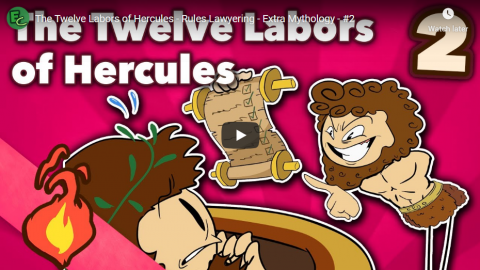World War Two
Published 3 Dec 2019Strategic bombing was used to destroy the popular support for their governments war effort, and the British boosted that their resistance to bombing was an unique trait. But both are false, based on lies and propaganda.
Join us on Patreon: https://www.patreon.com/TimeGhostHistory
Or join The TimeGhost Army directly at: https://timeghost.tvFollow WW2 day by day on Instagram @World_war_two_realtime https://www.instagram.com/world_war_t…
Join our Discord Server: https://discord.gg/D6D2aYN.
Between 2 Wars: https://www.youtube.com/playlist?list…
Source list: http://bit.ly/WW2sourcesHosted by: Spartacus Olsson
Written by: Joram Appel and Francis van Berkel
Produced and Directed by: Spartacus Olsson and Astrid Deinhard
Executive Producers: Bodo Rittenauer, Astrid Deinhard, Indy Neidell, Spartacus Olsson
Creative Producer: Joram Appel
Post-Production Director: Wieke Kapteijns
Research by: Francis van Berkel and Joram Appel
Edited by: Karolina DołegaThumbnail Colorization by:
– Julius Jääskeläinen – https://www.facebook.com/JJcolorization/Colorizations by:
Dememorabilia – https://www.instagram.com/dememorabilia/Sources:
– Imperial War Museum: D2168, D1623, D2956, 36206, D1587, D2154, D2157, HU36143, HU 36199
– Deutsche Fotothek, 0000436
– Noun Project: Natural Disasters 1674928 By Claudia Revalina, ID
noun_prisoner 63221 By carlotta zampini, IT, Bomb by P Thanga Vignesh
– Toni Frissell, Abandoned boy, London, 1945
– Battle of Britain, film from United States Holocaust Memorial MuseumArchive by Screenocean/Reuters https://www.screenocean.com.
A TimeGhost chronological documentary produced by OnLion Entertainment GmbH.
From the comments:
World War Two
7 hours ago (edited)
Having spoken to many British people while researching this episode, I realised that many in the United Kingdom still grow up with the idea that the perseverance in the face of constant bombing was something uniquely British, and that the so-called “Blitz Spirit” caused people to proudly face Hitlers bombs and transcend class-differences, and that bombing actually boosted their morale. However, research – half of which was done by Francis who is from Britain as well, shows that this idea is mainly based on propaganda. Furthermore, it is still considered controversial to doubt Churchill’s war cabinet’s policy of mass bombing German cities to force them out of the war. However, the effectiveness of this too has been proven to be based on falsehoods and lies. The true effectiveness of strategic bombing was already known to Churchill’s advisors during the war. Feel free to enter discussion about this in the comment section, but keep it civil and back up your arguments with examples and sources wherever possible.Cheers,
Joram









